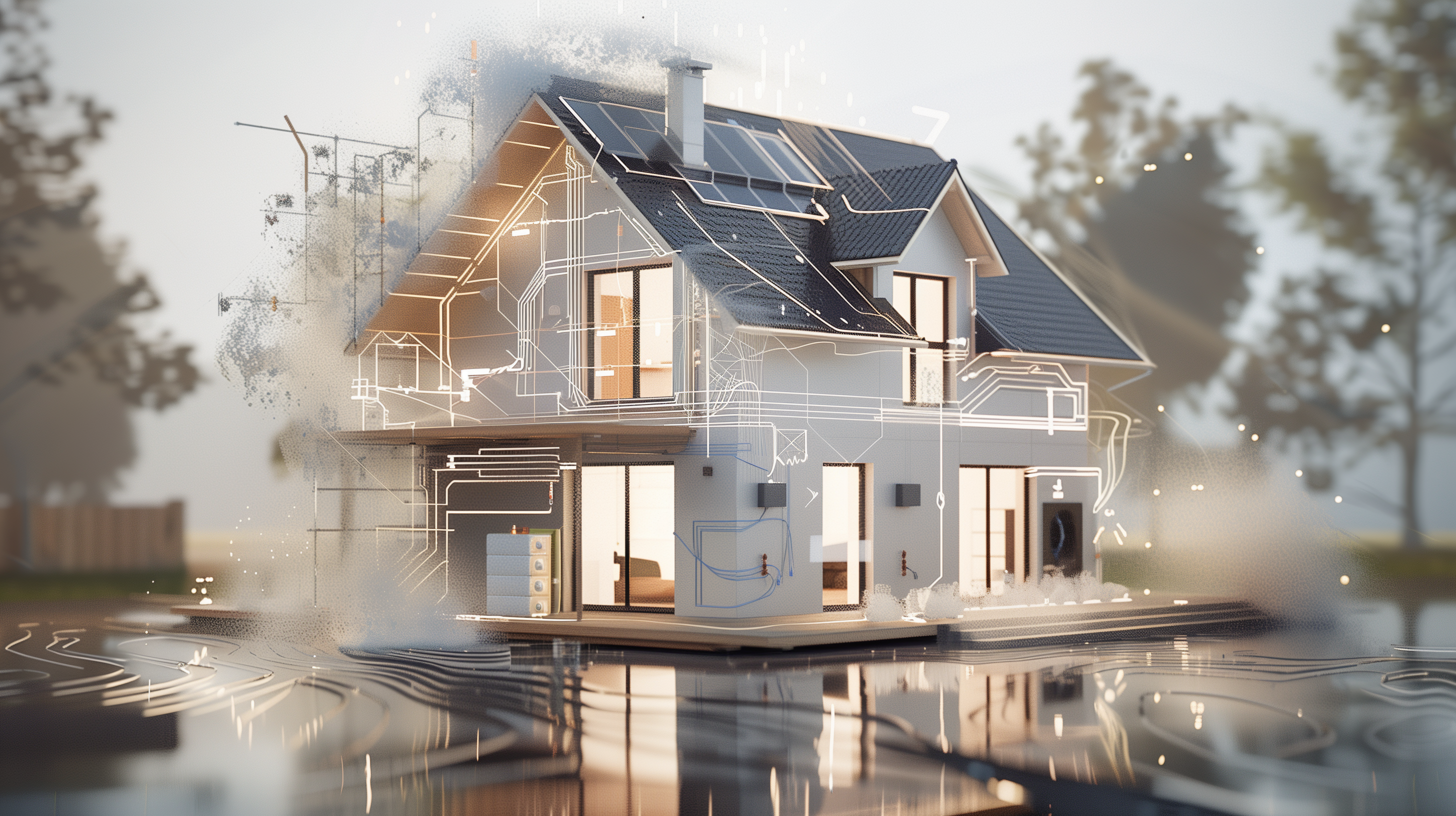Causes of Water Coming Up from Basement Floor Drains and How to Fix It
Seeing water coming up from your basement floor drain is a cause for concern, often signaling serious plumbing or drainage issues. Left unresolved, it can lead to basement flooding, property damage, and even health hazards from contaminated water. In areas prone to heavy rain, like Illinois and the greater Chicago area, homeowners may face this problem more frequently. Understanding the causes and knowing how to fix the issue can help protect your home from significant water damage.
Common Causes of Water Coming Up from Basement Floor Drains
Basement floor drain backups can result from a variety of factors, ranging from minor clogs to major sewer issues. Below are the most common causes:
1. Clogged Floor Drain
The most common reason for water backing up from the basement drain is a clog in the drain pipe itself. Over time, debris, dirt, and sediment can build up in the drain, reducing its capacity to move water efficiently. In some cases, items like soap scum or even small household objects can block the drain, leading to water overflow.
- Solution: Try using a plunger or drain snake to clear minor clogs. For stubborn blockages, chemical drain cleaners can help, but if the clog persists, professional cleaning may be necessary to fully restore drainage.
2. Sewer Line Backup
A more serious issue occurs when the main sewer line becomes blocked or overwhelmed, causing wastewater to back up through the basement floor drain. Sewer line backups can result from tree roots infiltrating the pipes, heavy rain overwhelming the system, or blockages from debris in the line.
- Solution: A professional plumber is typically required to address sewer line backups. They may use specialized tools such as an auger or hydro-jetting to remove tree roots and blockages. In severe cases, the damaged portion of the sewer line may need to be repaired or replaced.
3. Heavy Rain or Flooding
During heavy rainfall, municipal stormwater systems can become overwhelmed, causing water to back up through the sewer lines and into basement floor drains. If the local drainage system is overcapacity, it may force water back into homes, especially those in low-lying areas.
- Solution: Install a backwater valve to prevent water from flowing backward into your home’s drains during heavy rains. This simple yet effective device blocks water from coming up through the basement floor drain. Make sure your home’s drainage system is also equipped with sump pumps to handle excess water.
4. Sump Pump Failure
In many homes, sump pumps are installed to help remove water from the basement, especially during storms. However, if the sump pump fails—whether due to mechanical issues, a power outage, or improper maintenance—water can start pooling in the basement and may even come up through the floor drains.
- Solution: Regularly maintain your sump pump to ensure it’s functioning correctly. Consider installing a backup battery system to keep the pump running during power outages. If the sump pump is old or frequently malfunctions, replacement may be necessary.
5. Blocked or Damaged Drainage Pipes
Sometimes, the issue lies with the drainage pipes themselves. Over time, pipes can crack, collapse, or become clogged with debris, preventing proper water flow and causing backups through the basement floor drain.
- Solution: A professional inspection, often using cameras to assess the condition of your pipes, can identify any damage or blockages. Depending on the severity of the issue, the pipes may need to be cleaned, repaired, or replaced.
How to Prevent Water from Coming Up Through Basement Floor Drains
Preventing water from backing up through your basement floor drains requires proactive maintenance and the installation of effective drainage systems. Below are some key steps you can take to protect your home:
1. Install a Backwater Valve
A backwater valve is one of the best defenses against sewer backups. This valve prevents water from flowing backward into your home’s plumbing system, keeping your basement dry during heavy rain or municipal sewer backups.
2. Maintain Your Sump Pump
Make sure your sump pump is regularly inspected and cleaned to avoid mechanical failures during storms. Test the pump at least once a year, and ensure it has a backup power source in case of a power outage. This can help prevent flooding during severe weather.
3. Keep Floor Drains Clear
Regularly inspect and clean your basement floor drains to remove debris, dirt, and any other blockages. Pour water down the drain periodically to ensure it’s flowing properly and not blocked. This can help prevent minor clogs from becoming major backups.
4. Clean and Inspect Sewer Lines
Annual inspections of your home’s sewer line can help identify any issues before they turn into major problems. Professional plumbers can use a camera inspection to detect cracks, blockages, or tree root intrusion early, helping you avoid costly repairs.
5. Properly Dispose of Waste
Avoid flushing or dumping items down your drains that could cause clogs. Items like grease, food scraps, and hygiene products should never be disposed of through household drains as they can build up and block your plumbing system.
What to Do if Water is Coming Up from Your Basement Floor Drain
If you discover water coming up through your basement drain, it’s essential to act quickly to minimize damage. Here’s what you should do:
- Turn Off Water Sources: Immediately turn off any water sources that could be contributing to the problem, such as washing machines or dishwashers.
- Clear the Area: Remove any furniture, carpets, or belongings from the affected area to prevent water damage.
- Check for Clogs: Try using a plunger or drain snake to clear any obvious clogs. If the water continues to back up, stop and call a professional plumber to assess the issue.
- Call a Professional: If the issue seems to be a sewer backup or a sump pump failure, contact a licensed plumber for immediate assistance.
Building Code Compliance for Drainage Systems
In Illinois, ensuring your drainage and plumbing systems are up to code is crucial for preventing basement flooding and floor drain backups. The International Residential Code (IRC) and local building codes outline the requirements for proper drainage systems, including the installation of backwater valves, sump pumps, and proper grading around the home. Hiring a licensed contractor familiar with these regulations is essential to ensure your home meets all safety and compliance standards.
Conclusion
Water coming up from your basement floor drain can be a sign of a serious plumbing issue or a more significant problem with your home’s drainage system. By identifying the cause, addressing the problem quickly, and taking preventive measures like installing a backwater valve or maintaining your sump pump, you can protect your basement from costly water damage.
If you’re dealing with a basement drain backup or want to prevent future flooding, contact the experts at Allied Emergency Services, INC. We specialize in water damage restoration and drainage system repair, ensuring your home stays safe and dry.
Contact Information:
Phone: 1-800-792-0212
Email: Info@AlliedEmergencyServices.com
Location: Serving Illinois, Wisconsin, and Indiana with a focus on the greater Chicago area.
If you require immediate assistance or have specific questions, our human support is readily available to help you.
Disclaimer: This article is intended for informational purposes only. For professional advice, consult experts in the field.










